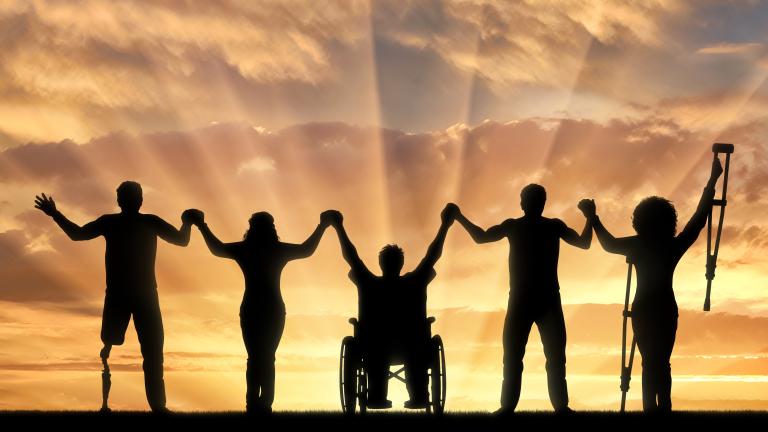Based in Delhi, India, Dr. Singh is best described as a healer, a teacher, a disability rights crusader, and an advocate for disability employment in the medical and health care industries. Acquiring a physical disability in his legs due to polio when he was nine months old, Dr. Singh went on to become a medical doctor and a professor at the University College of Medical Sciences, Delhi. A firm believer in diversity and inclusion, he fought discrimination to bring policy reforms that unlocked 1,674 faculty posts for doctors with disabilities. His tireless work also helped raise the bar for web accessibility standards in hospitals under the Government of Delhi.
As a professor, Dr. Singh strongly believes that education has the power to break down barriers in communication, attitudes, and opportunities for medical students with disabilities. Outside of the healthcare industry, Dr. Singh played an integral role in making India’s 2014 General Elections in Delhi accessible to people with disabilities. In recognition of his accomplishments, he received the State Award from the Government of Delhi. In 2017, Dr. Singh became the first Indian to win the Henry Viscardi Achievement Award. This prestigious award is given to extraordinary leaders in global disability activism. Today, he continues to work toward improved accessibility— including medical institutions, banks, and post offices — across India.
Interviewed by our Different & Able President and Founder, Alexandra Nicklas, Dr. Singh discusses how his locomotor disability was one of the factors that defined his characteristic traits of perseverance and resilience. Dr. Singh also tells of his work in advocating for equal access in medical education. In addition, he talks of his success with ensuring competencies around the care of patients with disabilities. As Dr. Singh states, ‘Don’t identify a person based on their disability. Just talk to them and respect them as human beings.”


